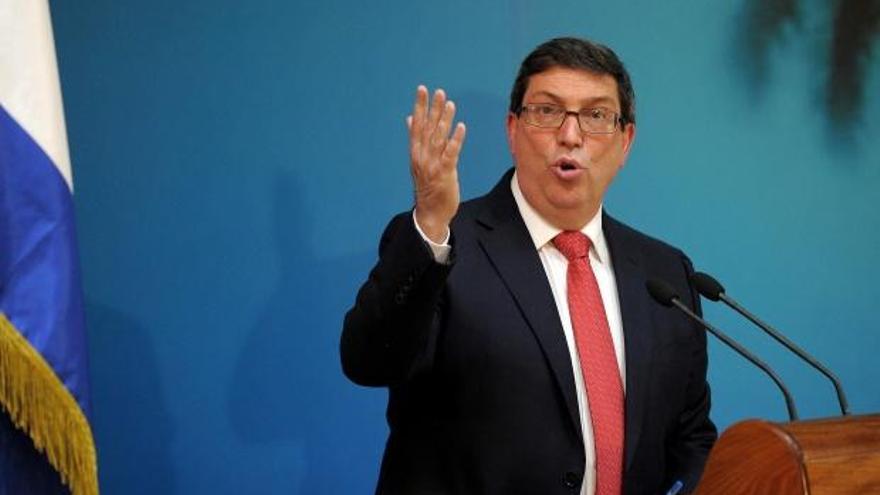
![]() Havana, 16 March 2019 — This Saturday, the Ministry of Foreign Affairs (Minrex) rejected the United States’ decision to reduce the duration of the B2 Visa (for tourism and family visits) from five years to three months for Cuban citizens. The decision was announced this Friday by the US Embassy in Havana.
Havana, 16 March 2019 — This Saturday, the Ministry of Foreign Affairs (Minrex) rejected the United States’ decision to reduce the duration of the B2 Visa (for tourism and family visits) from five years to three months for Cuban citizens. The decision was announced this Friday by the US Embassy in Havana.
According to the Foreign Ministry, “this decision constitutes an additional obstacle” for Cuban citizens wanting to visit their relatives in the neighboring country. The Ministry added that this decision “is in addition” to the closure of the consular services of the United States in Havana and to the “unjustified interruption” of the granting of visas to Cubans, who must travel to third countries to apply for a visa.
According to Havana, the reduction of the validity period of the visa “imposes high economic costs on relatives for exchange in multiple areas.” The United States adduces a criterion of “reciprocity” for this change, since US citizens require a visa to travel to the island and the document is only valid for two months and for a single entry. continue reading
The Cuban Foreign Ministry nevertheless believes that “it is not true” that a criterion of reciprocity applies to this measure. “Cuba offers all the facilities for US citizens to obtain a visa to travel to Cuba, which is issued at the time of travel,” explained the Minrex.
The Trump administration decided in 2018 to evacuate the vast majority of diplomatic personnel from the US embassy in Cuba in light of mysterious acoustic attacks suffered by over twenty officials. Former leader Raúl Castro and Miguel Díaz-Canel have denied the implication of Cuban intelligence services participation in the attacks, but Washington asserts that the island didn’t do enough to protect the diplomats.
“If the United States genuinely wishes to apply a policy of reciprocity, it should immediately reopen its Consulate in Havana,” adds the Ministry, which also calls for “resuming the process of granting visas and eliminating the prohibition of US citizens from traveling freely to Cuba.”
Since Trump’s arrival at the White House, relations between both countries are under strain. The United States has failed to comply with the migration agreement signed with Cuba in 1996, guaranteeing the delivery of 20,000 visas annually. Furthermore, the US has toughened the travel ban on the island for its own citizens, occasioning a steep delcine in the volume of visitors from that country to Cuba.
Trump has also threatened to fully activate Title III of the Helms-Burton Act, which would allow suits in US courts for companies that “traffic” with properties expropriated by Fidel Castro in the 1960s, and has blamed Cuba for its role in the Venezuela crisis.
Translated by Carly Dunn
_______________________
The 14ymedio team is committed to serious journalism that reflects the reality of deep Cuba. Thank you for joining us on this long road. We invite you to continue supporting us, but this time by becoming a member of 14ymedio. Together we can continue to transform journalism in Cuba.

